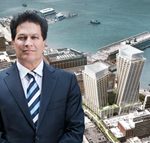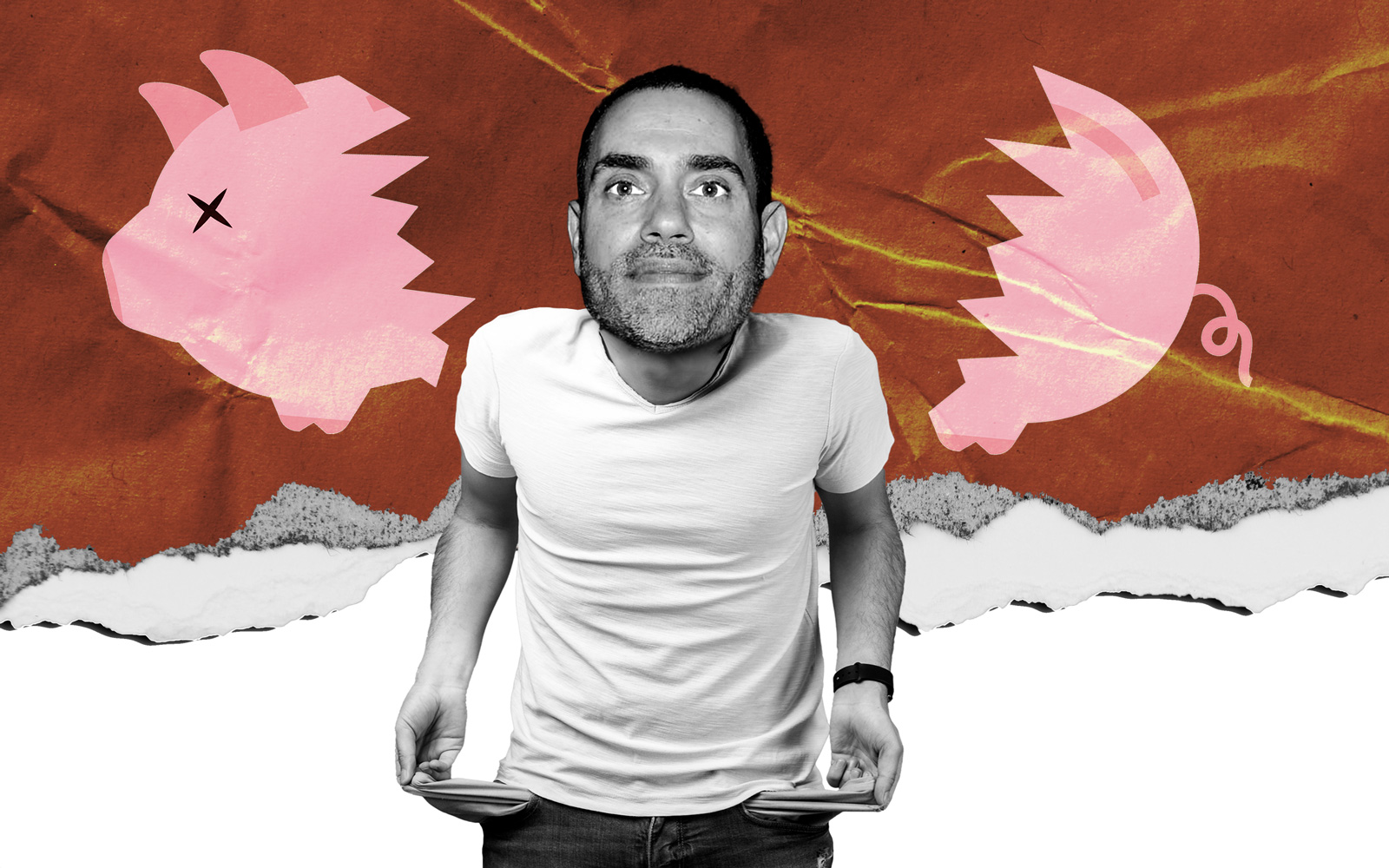Nir Meir’s day has finally come.
Meir had faced many accusations since leaving HFZ Capital Group more than three years ago, including from investors, his former partner, and even his wife.
But all were civil cases. That changed this week when Meir was indicted by Manhattan District Attorney Alvin Bragg for allegedly masterminding a scheme that stole or misappropriated $86 million from investors, subcontractors, and New York City.
Bragg also charged HFZ, two former HFZ executives, construction firm Omnibuild, and three Omnibuild employees — including its leader, John Mingione — with grand larceny. All parties pleaded not guilty at a packed hearing on Wednesday.
Here’s how the $86 million was illegally diverted, as described by five indictments stemming from a three-year investigation by the D.A. and State Police:
Meir, the former managing principal of HFZ now being extradited from Miami, orchestrated multiple frauds dating back years. The firm’s former head of construction, Anthony Marrone, and a former project manager, Louis Della-Peruta, were co-conspirators. HFZ founder Ziel Feldman was not named in the indictment.
Meir illegally diverted $60 million from HFZ projects to cover shortfalls on other HFZ projects, using bogus documents, fake wire transfers and false promises to dupe investors and a lender. He also shorted the city $15.6 million in taxes. Another $11 million was looted in various schemes.
The XI, HFZ’s twisting condo, hotel and retail project between the High Line and the Hudson River, was at the center of the schemes. In 2015, HFZ bought the West Side site at 76 11th Avenue for $870 million, which was then the highest price ever paid for land in New York City. In 2017, Children’s Investment Fund lent $1.25 billion to the planned two-tower, $1.9 billion development.
After loan funds were deposited into the project’s bank account, where state law required them to remain except to pay for work on the project, Meir moved $253 million to different entities controlled by HFZ, then into other projects’ accounts, primarily to cover shortfalls on those developments. Some money went to personal accounts of HFZ executives.
When the money was later moved back into the XI account, $37 million was missing.
To cover the shortfall, executives from HFZ and Onmibuild had certain subcontractors inflate monthly invoices. This made it appear like the project progressed more than it had, increasing the apparent value of the collateral for the loan and causing the lender to release additional funds to HFZ.
When subcontractors expressed concerns about the inflated invoices, Meir, Marrone and Mingione instructed them to keep at it in order to be paid. This netted over $6.5 million from the lender.
Omnibuild denies the allegations. Dozens of its employees showed up at the hearing on Wednesday.
“Even though Omnibuild is in the same indictment as HFZ, three counts of that indictment allege that HFZ stole from Omnibuild and others,” said Josh Vlasto, a spokesperson for Omnibuild. “This is in addition to the three other indictments charging HFZ alone. We reiterate that Omnibuild is a victim of, and not acting in concert with, HFZ.”
Vlasto said Omnibuild did not profit from the alleged scheme. He added that “all billing instructions were exclusively directed by the project owner and any deviations from this originated solely from their directives.”
Omnibuild filed a $100 million lien against HFZ in 2020, citing unpaid work. At the time, HFZ claimed it fired Omnibuild.
Once HFZ’s financial difficulties became public, investors demanded to see its records. Meir then directed an HFZ accountant to forge bank statements to make it look like accounts were plush with cash when they only had $814.
In another alleged scheme at the XI, Omnibuild employee Roy Galifi conspired with a subcontractor to steal $300,000 from the project lender. The subcontractor agreed to pay that amount to Galifi, who promised to reimburse the business by inflating the cost of change orders.
This happened without the knowledge of HFZ or Omnibuild, the indictment explains. Galifi was charged with conspiracy, money laundering and falsifying business records.
Separately, in Nomad, HFZ planned to construct a 64-story residential tower at West 30th Street next to the Marble Collegiate Church. Once construction started in 2018, Meir moved $107 million out of the project’s account into other HFZ accounts over four years. As in the previous case, in violation of the state’s lien law, the money was mostly used to cover shortfalls on other projects, and some ended up in the personal accounts of HFZ executives.
When invoices came due, HFZ returned $83 million to the project’s bank account, leaving a shortfall of $24 million. As a result, the project’s general contractor, Pavarini McGovern, and its subcontractors were owed more than $20 million. Marrone, the construction director at HFZ, warned Pavarini not to tell the project lender, while Meir made false promises and faked wire transfers to string his contractor along.
Meir, Marrone and HFZ were charged with grand larceny.
Read more




Meir’s alleged fraud also extended to San Francisco. In 2017, Arica Development invested $5 million towards HFZ’s acquisition and development of a commercial property at 620 Folsom Street. The day the contract was signed, about $5 million was wired into an HFZ bank account.
But HFZ never acquired the rights to develop 620 Folsom. Instead, Meir for several years misrepresented to investors HFZ’s work on the project. He sent Arica an update about fictitious permits and provided brochures detailing fake cost estimates. Only $400,000 was used in the failed acquisition. The remaining $4.6 million was diverted to other HFZ accounts in violation of its loan agreement. Meir was charged with grand larceny.
Meir and HFZ are also accused of not paying New York City $15.6 million in property taxes on unsold condo units from 2018 to 2020. Meir told HFZ accountants to use the Department of Finance’s online portal to make a payment, then instructed them to cancel payments the next day before the money could be withdrawn. Some payments were rejected by HFZ’s bank for insufficient funds.
Meir and HFZ were charged with criminal city tax fraud.
